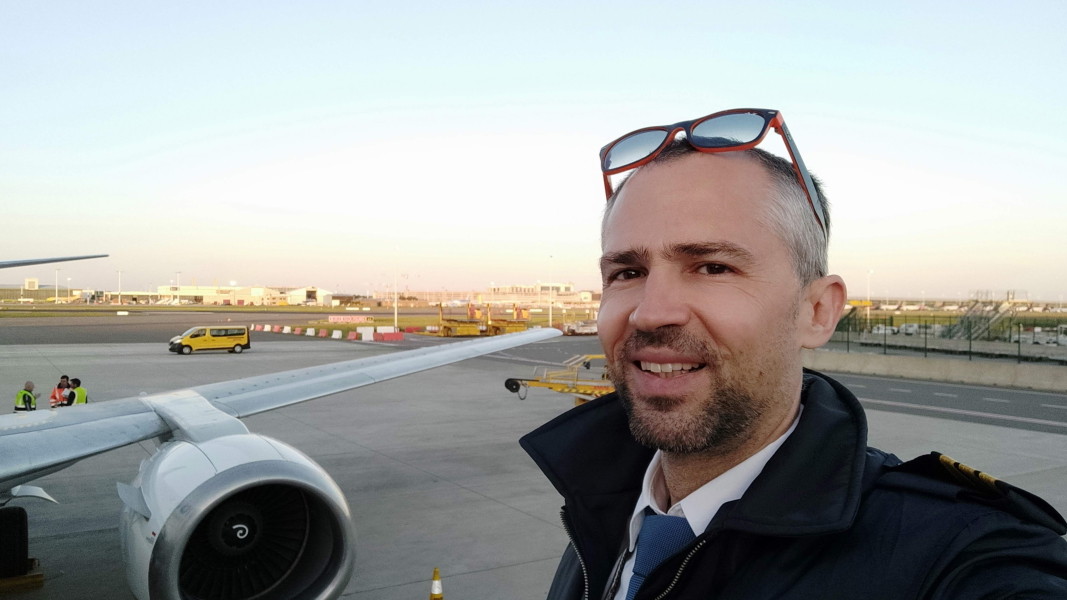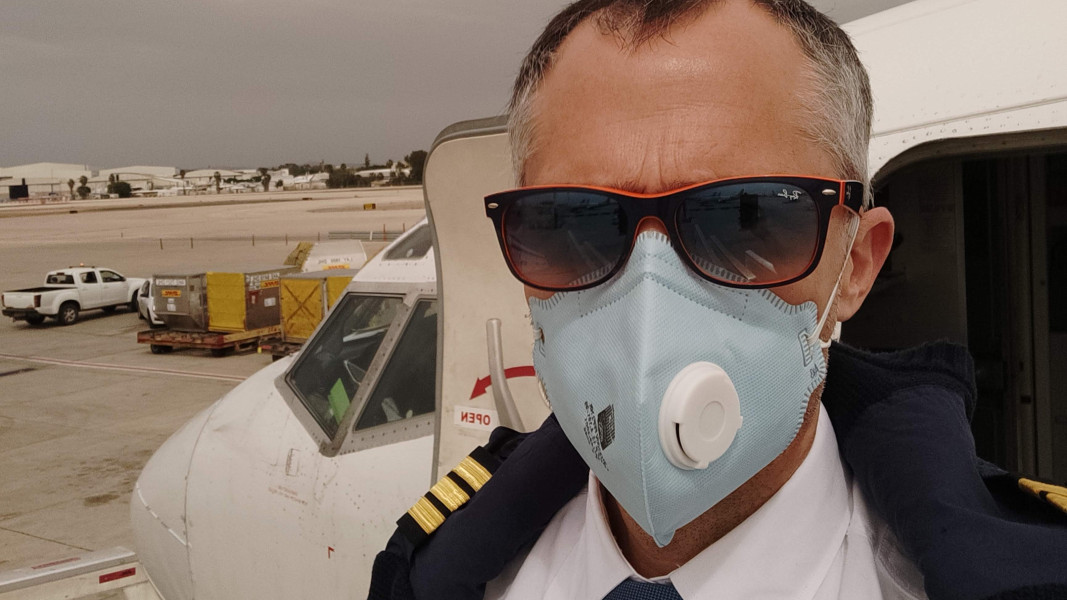The global pandemic has grounded more than 80% of aircraft, as all airlines are suffering huge financial damage, and some have already declared bankruptcy. The aviation sector expects the incurred losses to reach more than 3 trillion euros. The empty sky provoked a conversation with Alexander Bogoyavlenski – an aviation journalist and professional civilian pilot.
Air purification inairplanes is part of safety measures during an epidemic. The Bulgarian national airline has announced that the air supplied to the passenger cabins of its aircraft is heated above 200 degrees. Is this solution enough to make sure that the virus will not circulate in the air that passengers breathe during flights?

“All carriers use identical system for air purification and for air supply to the passenger cabins, they depend on the type of aircraft. They have different air conditioning systems, but they are all built on a similar principle: a huge part of the air in the cabin is returned to it, recirculated and about 20% of it is constantly purified, i.e. fresh air is introduced from outside, which is added to the recycled air and this process is repeated. Every 2-3 minutes, 20% of the air in the passenger compartment is renewed with fresh air. Therefore, all the air in the passenger compartment is renewed in 15 minutes."
Air conditioning systems in airplanes are unlikely to become a mass carrier of infection, although major airlines have already acknowledged that filters are not changed often enough.
"It is more likely that infection in the planes might occur due to insufficient physical distance of the passengers," Bogoyavlenski commented.
Various measures are being discussed to restore air transport and, accordingly, to ensure the social distance of passengers. How realistic is the idea of leaving the middle seats in airplanes unoccupied?

"After everything we've seen, any such decision is now realistic, but it depends on certain factors. First, whether governments will impose such a measure, second, whether airlines will comply with it. Europe's largest airline has announced it will leave its planes on the ground if it is forced not to sell the middle seat. These are temporary solutions that can be imposed with more serious government measures. Of course, this measure is not profitable for airlines. But we do not expect a large passenger load on flights in the first few months after the weakening of measures. It is normal for the crew on board to decide for themselves where to accommodate the passengers and how to distribute them on the seats”.
Given the huge financial losses for airlines, what can we expect regarding airline ticket prices?
"At the moment, what we can summarize is that in the best positions are the so-called low cost airlines. Low cost does not mean cheap plane tickets. Low-cost companies generate much lower costs than traditional carriers – i.e. fuel costs, passenger transport, service, maintenance, etc.
Due to low operating costs, these airlines can offer lower fares. If these costs increase, tickets will become more expensive.
After the crisis, niche markets will be vacated by traditional carriers that will no longer fly, some will declare bankruptcy or will not be able to quickly bring their planes into the air. Airlines, on the other hand, need to attract passengers back on board with safe ways of flying.
I expect the fares to be attractive enough initially so that all passengers get back on board, and then the prices will normalize according to the economic situation."

* The BNR audience has known Alexander Bogoyavlenski as a voice on the air for 15 years. Then he embarked on a journalistic career on BBC radio and Radio Free Europe, and is currently the author of an aviation television show. In parallel, he has a successful career as a professional pilot of passenger and cargo aircraft.
English Rossitsa Petcova
Photos: BGNES and private libraryBulgaria’s accession to the eurozone will reduce transaction costs with key trade and investment partners, according to the annual U.S. State Department report on the investment climate in the country, reported BGNES. The report emphasizes that..
Less than 100 days remain until Bulgaria joins the eurozone, and this is another reason to talk about the incomes of people in Bulgaria, about the Bulgarian economy, about foreign investments and about the domestic labour market which reacts the..
At the end of September, with a little over three months to go until the Rubicon in Bulgarian public finance - 1 January, 2026, when the country will officially leave the currency board and adopt the single European currency, the euro – issues..

+359 2 9336 661
